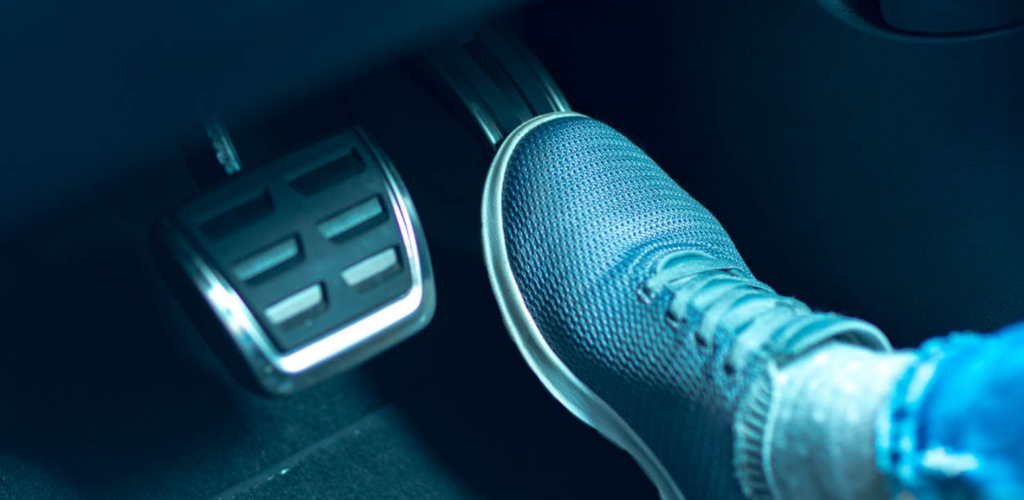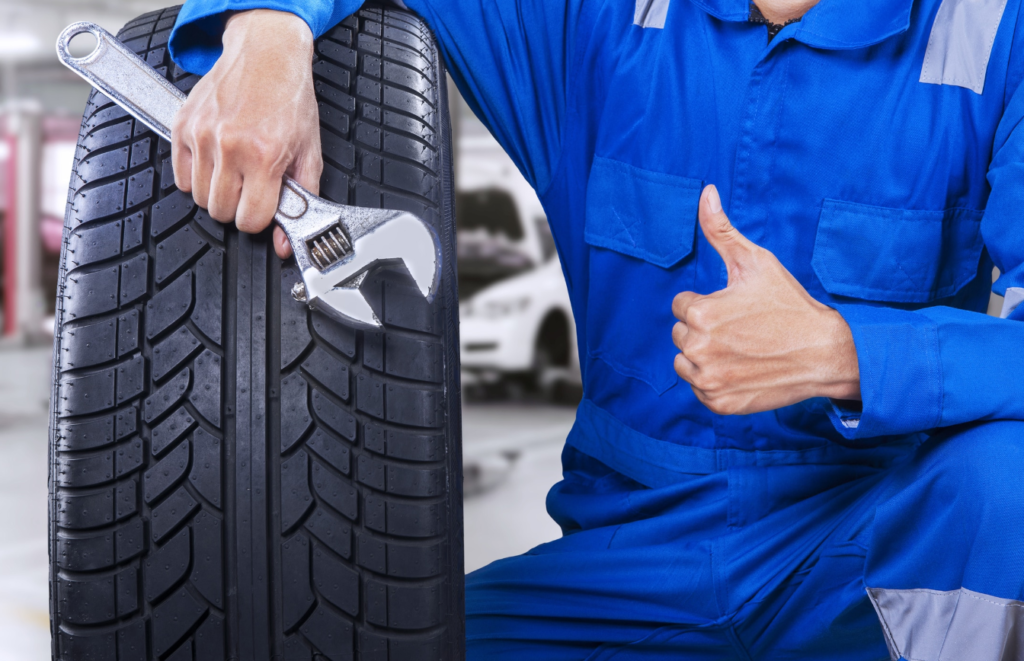One of the most concerning sounds for any driver is when their car makes noise when accelerating at low speed. This issue can be puzzling and annoying, but more importantly, it may be indicative of more severe problems lurking under the hood. Ignoring this problem could lead to significant damage to your vehicle, potentially leading to costly repairs. Hence, it’s vital to promptly address any such noise as it is integral for both the longevity of your car and your safety on the road.

Common Types of Noise During Acceleration
Identifying the Different Sounds
When your car makes noise when accelerating at low speed, it’s important to note the type of noise, such as squeaking, knocking, or grinding. Each sound is typically associated with different issues, so accurate identification is key.
What Each Noise Might Indicate
For instance, a squeaking noise might imply a problem with your drive belt, while a knocking sound could indicate engine troubles. Grinding noise, on the other hand, often points towards brake or transmission problems.
Engine-Related Causes
Troubleshooting Engine Noises
Engine noises are quite alarming when a car makes noise when accelerating at low speed. To determine the source, it’s necessary to check various engine components for wear or damage.
Potential Issues with Engine Components
Piston Problems
Knocking or pinging noises may be a sign of piston-related issues, such as worn piston rings or cylinder walls. These noises tend to increase when accelerating due to the added strain on the engine.
Spark Plug Issues
A misfiring spark plug can also cause your car to make a noise when accelerating at low speed, typically a popping sound.
Timing Belt or Chain Concerns
A flapping or slapping sound might be an indicator of a loose or worn timing belt or chain, which can lead to serious engine damage if not replaced promptly.
Exhaust System Noise
Diagnosing Exhaust System Issues
An exhaust system problem is another common reason why a car makes noise when accelerating at low speed. These issues are typically easy to identify as they result in a loud or growling noise.
Common Exhaust Noise Culprits
Leaks and Holes
Leaks or holes in the exhaust system can cause a hissing or tapping noise that intensifies with acceleration.
Muffler Problems
A failing muffler often produces a low, growling noise and can also lead to increased engine noise.
Catalytic Converter Troubles
A rattling noise, especially when starting your vehicle, might be due to a failing catalytic converter, a vital component in reducing exhaust emissions.
Transmission Troubles
How Transmission Noise Differs
Transmission noises are distinctive and often occur when a car makes noise when accelerating at low speed. They can manifest as humming, whining, or clunking sounds.
Transmission Issues Leading to Noise
Low Transmission Fluid
A common cause of transmission noise is low fluid levels. In this case, you’ll hear a whining noise that gets louder as you accelerate.
Worn Clutch Components
If the clutch components are worn out, you’ll likely hear a grinding noise when changing gears.
Faulty Transmission Mounts
Faulty or damaged transmission mounts may also result in clunking noises during acceleration.
Suspensions and Steering Noise
Identifying Suspension Problems
Suspension problems can cause various noises when your car accelerates at low speed, like squeaking or groaning.
Steering Components and Noise Generation
Struts and Shocks
Worn-out struts or shocks can create a rattling or knocking noise, especially over bumps.
Control Arm Issues
Noises from control arm problems may sound like banging or clunking, particularly when turning or going over bumps.
Tie Rod End Troubles
Tie rod end problems might create a squeaking or grinding noise, more noticeable when making sharp turns.
Brake-Related Noises
Different Brake Noise Sounds
Brake noises can range from squeaking to grinding, often becoming louder when the car makes noise when accelerating at low speed.
Potential Brake System Problems
Brake Pad Wear
Worn brake pads often cause a squeaking or squealing noise that becomes more pronounced during acceleration.
Rotor Issues
If the rotors are warped or worn, you might hear a grinding noise when applying the brakes.
Caliper Malfunctions
A malfunctioning brake caliper can also create a squealing or clunking noise during braking and acceleration.
Wheel and Tire Noise
Diagnosing Wheel and Tire Issues
Wheel and tire issues can also be the culprit when your car makes noise when accelerating at low speed. These noises might be humming, rumbling, or squeaking.
Noise from Wheel Bearings and Hubs
A humming or growling noise, especially one that becomes louder as you speed up, might indicate a problem with your wheel bearings or hubs.
Uneven Tire Wear and Alignment Concerns
Uneven tire wear or alignment issues can also lead to a rumbling noise, particularly noticeable during acceleration.
Diagnosing the Issue
Step-by-Step Noise Diagnosis Guide
To diagnose the noise issue, follow a step-by-step process of elimination. Start by identifying the type of noise, then check the relevant components or systems.
Testing the Car in Various Conditions
Test your car in various conditions, such as accelerating, braking, and turning. If your car makes noise when accelerating at low speed, it might not be noticeable at higher speeds.
When to Seek Professional Help
Knowing When DIY Isn’t Enough
While some issues might be easy to troubleshoot, others require professional help. If the noise persists despite your efforts, it’s best to consult with a mechanic.
Finding a Trustworthy Mechanic
Finding a reliable mechanic is crucial for properly diagnosing and fixing the issue when your car makes noise when accelerating at low speed. Make sure they’re certified and have positive reviews.

Maintenance Tips to Prevent Noise
Regular Maintenance Schedule
Following a regular maintenance schedule can prevent many of the issues that cause your car to make noise when accelerating at low speed. Regularly check and replace worn or damaged parts as needed.
Tips to Avoid Noise Generation
Keeping your vehicle clean, avoiding harsh driving habits, and using high-quality parts can also help prevent noise generation.
Addressing Noise in Different Car Models
Model-Specific Noise Issues
Each car model might have its specific noise issues due to varying design and components. For instance, some cars might have more common issues with brake noise, while others may experience more engine noise.
Solutions and Tips for Each Model
Knowing the common issues with your specific model can help you more quickly diagnose and address the noise when your car makes noise when accelerating at low speed.
Safety Implications of Noise While Accelerating
Identifying Potential Hazards
Any noise when accelerating at low speed can indicate potential safety hazards. For example, a failing brake system can lead to accidents if not addressed immediately.
Safe Driving Practices
Maintaining safe driving practices, such as regular maintenance checks and immediate response to unusual noises, ensures you and your passengers’ safety.
Noise Reduction in the Cabin
Soundproofing Techniques for Cars
There are various ways to reduce the noise in your car’s cabin, from installing noise-damping materials to adjusting your driving style.
Noise Dampening Materials
Materials like foam, mass-loaded vinyl, and sound-deadening mats can be used to reduce the noise levels inside your car, providing a quieter ride even when your car makes noise when accelerating at low speed.
Environmental Impact of Car Noise
Noise Pollution and Its Consequences
Car noise, particularly when it’s excessive, contributes to noise pollution, impacting both human health and wildlife. Reducing car noise can have positive environmental effects.
Environment-Friendly Driving Practices
Adopting environmentally friendly driving practices, such as regular maintenance and avoiding unnecessary acceleration, can help reduce noise pollution.
Frequently Asked Questions (FAQs)
Is Noise When Accelerating Normal?
Not always. While some noise is normal, especially in older cars, any new, unusual, or loud noises should be investigated, especially if your car makes noise when accelerating at low speed.
Can I Ignore the Noise?
It’s not advisable to ignore any unusual noises from your car. These noises can be a sign of an underlying issue that could lead to more significant damage if left unaddressed.
How Much Does Repairing Engine Noise Cost?
The cost of repairing engine noise can vary significantly, depending on the specific issue and the vehicle model. It’s best to consult with a mechanic for an accurate estimate.
Should I Drive My Car If It’s Making Noise?
If the noise is minor and doesn’t affect the vehicle’s operation, you can drive it. However, if the noise is loud or if the vehicle is operating abnormally, it’s best to avoid driving until the issue has been addressed.
How Often Should I Check My Car’s Engine?
As a general rule, it’s good to check your engine every month. If you notice any unusual behavior or if your car makes noise when accelerating at low speed, it’s best to check it immediately.
Conclusion
The aim of this guide is to empower you to understand and tackle the noises your car may make when accelerating at low speed. It’s crucial to address these issues promptly to ensure the longevity of your vehicle and your safety on the road. By following the tips and advice provided, you can achieve a quieter and smoother driving experience, enhancing your overall enjoyment of your vehicle and ensuring peace of mind while on the road.